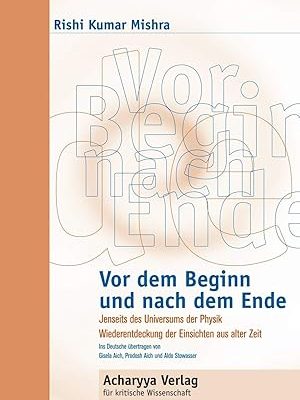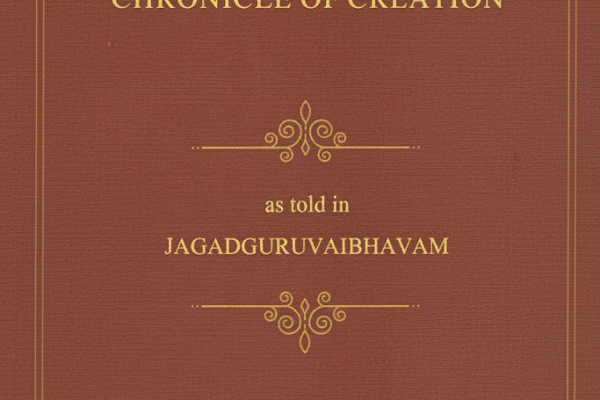
Vor dem Beginn und nach dem Ende: Jenseits des Universums der Physik, Wiederentdeckung der Einsichten aus alter Zeit
German translation of Rishi Kumar Mishra’s Before the Beginning and after the End: Beyond the Universe of Physics Translated into German by Dr. Gisela Aich, Dr. Prodosh Aich and Aldo Stowasser The German version is not a translation in the usual sense. It has been translated from the English original into German. The structure of the text – sections, chapters, paragraphs – is fully taken into account. There are changes within the paragraph. The style of the author is largely taken into account. All Sanskrit words are recognizable by the italics. These untranslated words are intended to constantly signal that they cannot be translated without distortion. The meaning of these words has been explained or paraphrased accordingly in the text. It might be possible to invent summary terms for the Vedic terms explained in English or in another language. But these must not already be burdened with earlier meaning. The German version does not contain a glossary or an index. We are convinced that the present book cannot be read quickly or diagonally. Therefore, both a glossary and an index have no function. Not only this omission, but all organization of the text that deviates from the original, has been done with the author’s consent. The footnotes are always at the bottom of the page. We find no plausible point in placing the footnotes at the end. Central Vedic terms that reappear after a while are provided with a “reminder” in German in brackets. Sanskrit does not know the hyphen between words. The words that are connected next to each other in the sentence are merged with each other wherever possible. However, if two or more Sanskrit words are next to each other that cannot be merged with each other, but this order makes sense, they remain without hyphens. The gender of such a combination is determined according to that of the last word. Example: Veda Mantra. Veda is masculine and mantra is matter-of-fact. The combination is called. The Veda Mantra. The main words in Sanskrit are provided with an article that is unusual in Sanskrit, namely after gender. Sanskrit has never used capital letters. Not even at the beginning of a sentence, which is unambiguous even without a capital letter. In order not to complicate reading, Sanskrit nouns begin with the capital letter in the Latin letters.


